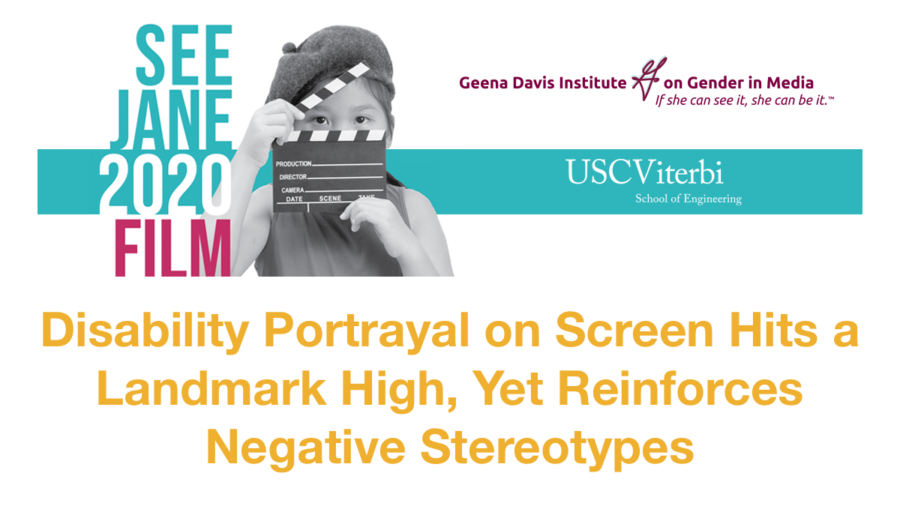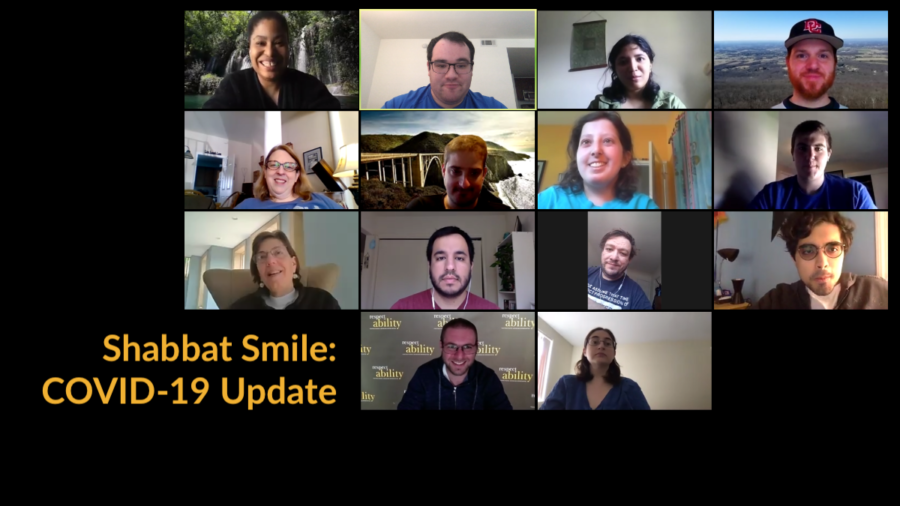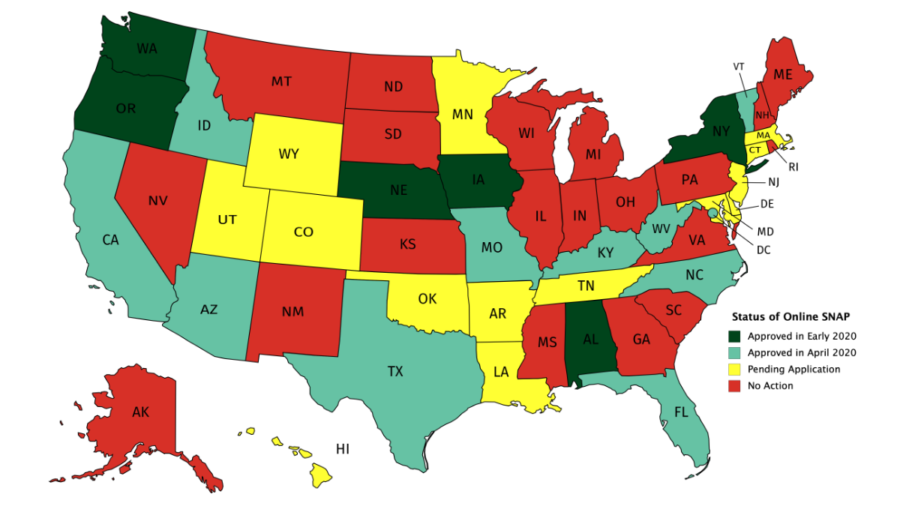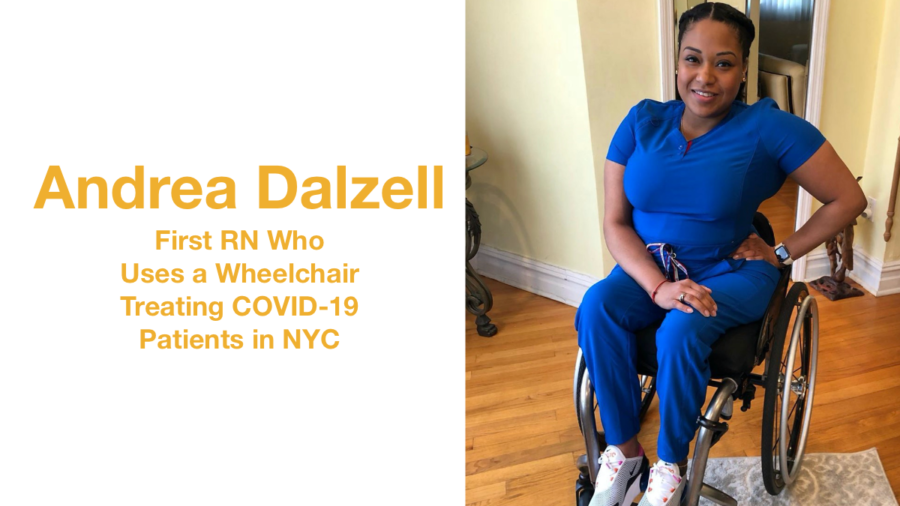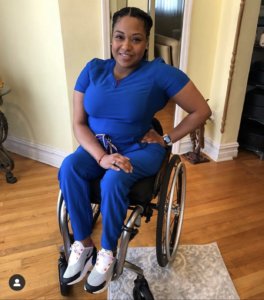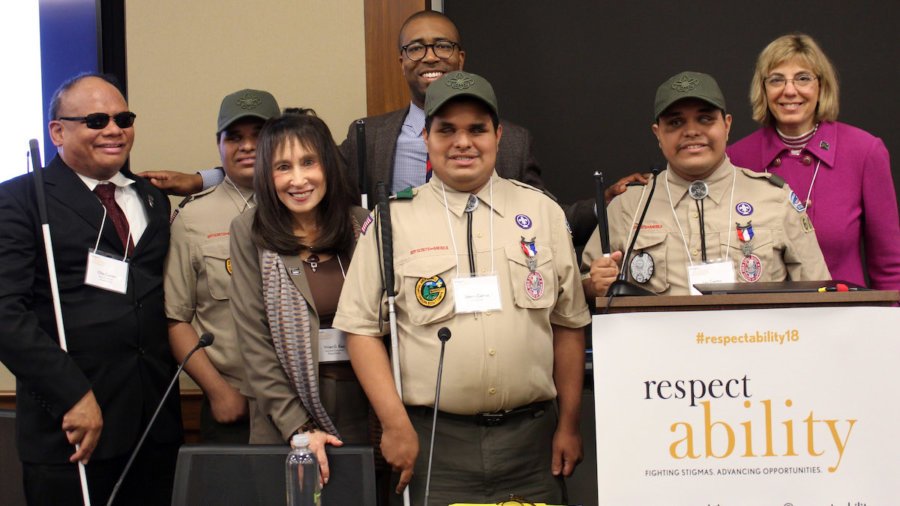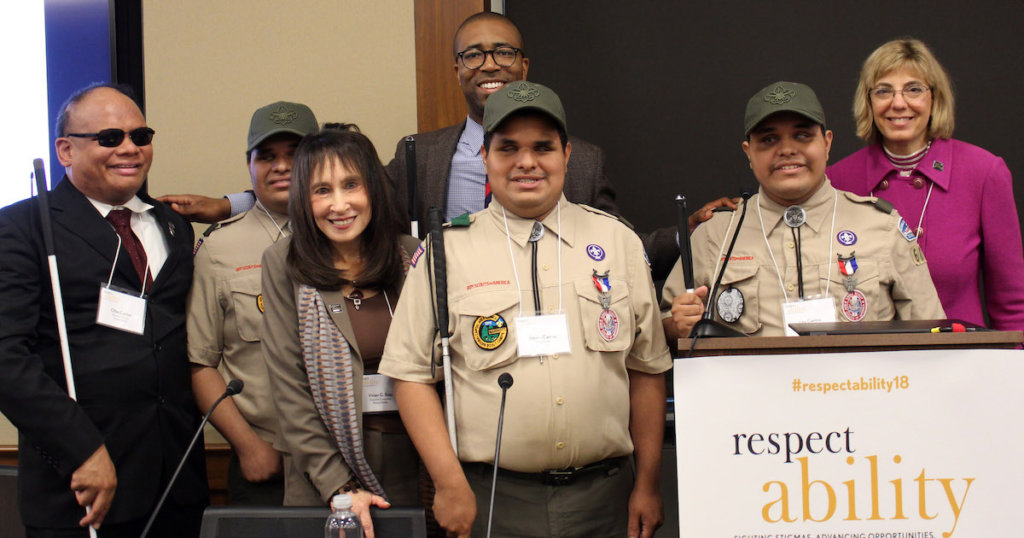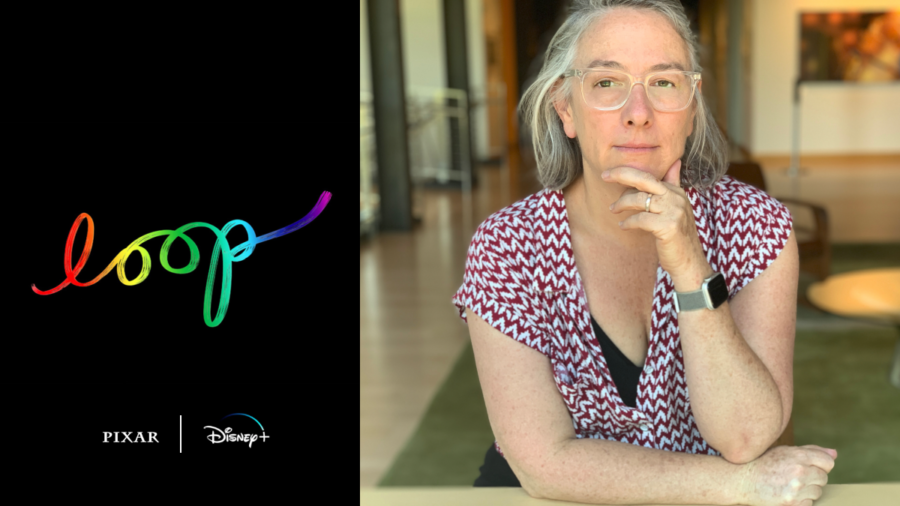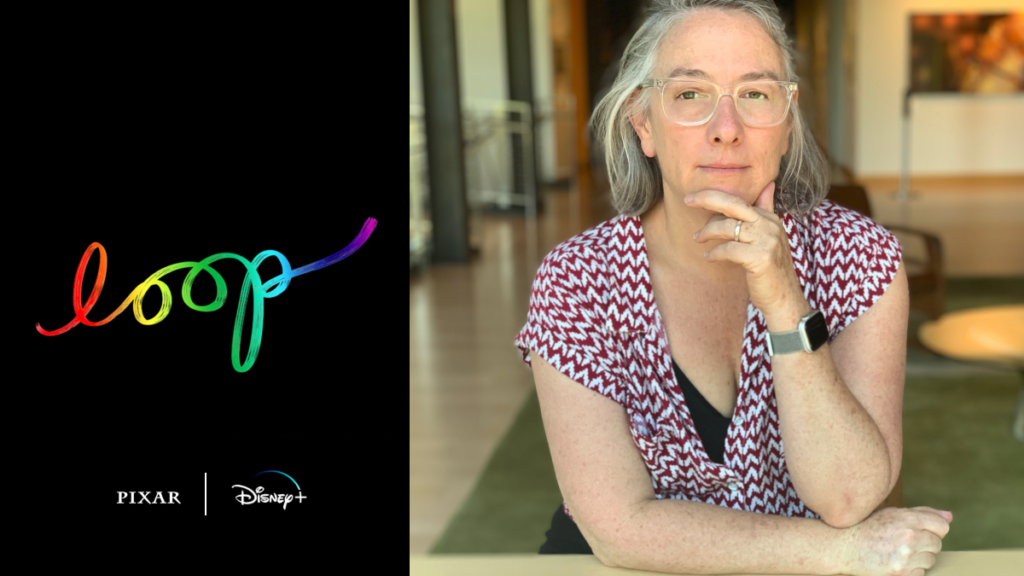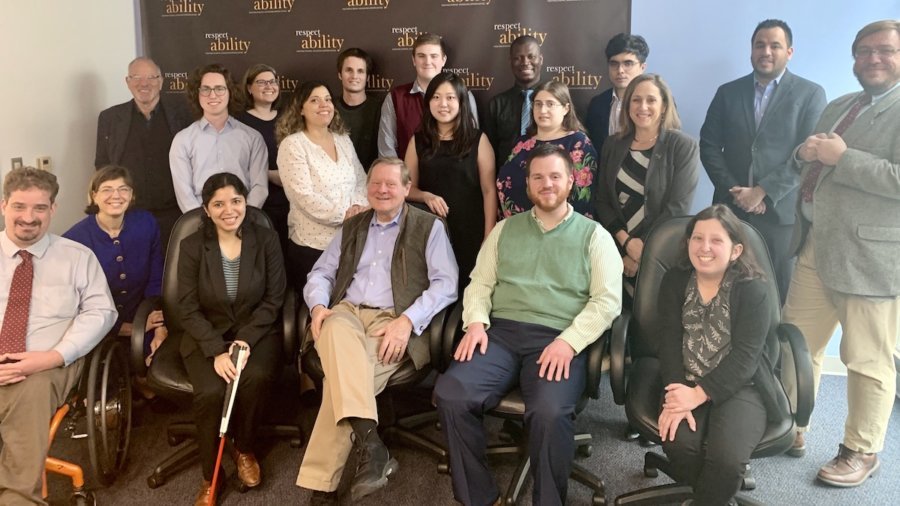Characters with Disabilities More Likely to Be Rescued or Die, But Those in the Workforce Portrayed Positively in Family Films
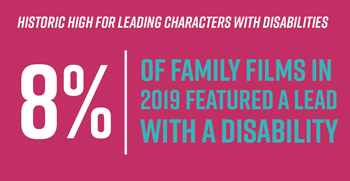 Los Angeles, California, May 4 – When it comes to showing people with disabilities on TV, they are almost never seen, and when they are, it is in a negative light, limiting opportunities for people with disabilities everywhere. However, a new study found the family film industry brings a continued historic high for leading characters with disabilities. In fact, eight percent of family films in both 2018 and 2019 featured a lead with a disability. This is jump up from just one percent from most of the last decade and shows that the increased representation is being sustained from one year to the next. While this number is still not representative of people with a disability in the U.S. – as one-in-five people in the U.S. live with a disability today, it is a step in the right direction.
Los Angeles, California, May 4 – When it comes to showing people with disabilities on TV, they are almost never seen, and when they are, it is in a negative light, limiting opportunities for people with disabilities everywhere. However, a new study found the family film industry brings a continued historic high for leading characters with disabilities. In fact, eight percent of family films in both 2018 and 2019 featured a lead with a disability. This is jump up from just one percent from most of the last decade and shows that the increased representation is being sustained from one year to the next. While this number is still not representative of people with a disability in the U.S. – as one-in-five people in the U.S. live with a disability today, it is a step in the right direction.
“Media is one of the most immediate and impactful ways to influence our views on societal norms and has the power to eradicate intersectional gender inequality in our global cultures,” said Madeline Di Nonno, CEO of the Geena Davis Institute on Gender in Media. “If our audiences can see themselves positively portrayed onscreen, it can reinforce the message that they matter. And also, it can influence their long-term views throughout their lives.”
The study, See Jane 2020 Film, was conducted by the Geena Davis Institute on Gender in Media and USC Viterbi School of Engineering. It evaluated the 100 top-grossing live action and animated family films (rated G, PG or PG-13) of 2019. These films included a total of 2,991 characters, including 122 leading/co-leading characters, 1,032 supporting characters and 1,837 minor characters. [continue reading…]


